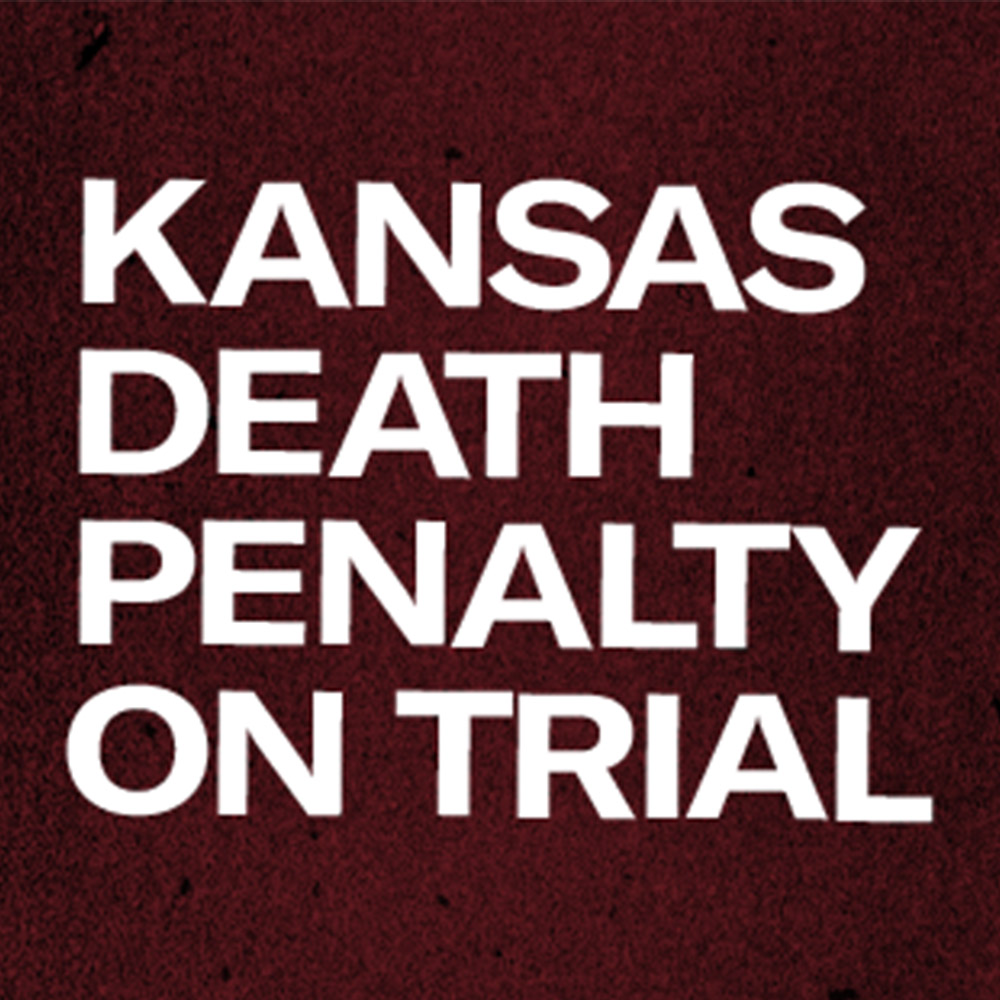Capital Punishment
Kansas v. Kyle Young
If the death penalty is racist, arbitrary and serves no valid penological purpose, does it violate the Kansas Constitution?
The ACLU, together with the ĚŇ×ÓĘÓƵof Kansas and law firm Hogan Lovells US LLP, challenged the Kansas death penalty statute under the Kansas Constitution and United States Constitution in the case of Kansas v. Kyle Young. Mr. Young is a Black man who faced a capital trial in Sedgwick County, Kansas. Prosecutors sought a death sentence. The Sedgwick County District Court held an unprecedented evidentiary hearing in February 2023.
Status: Closed
View Case
Learn About Capital Punishment
All Cases
58 Capital Punishment Cases

Massachusetts Supreme Court
Dec 2023
Capital Punishment
Graham v. Hampden County District Attorney
Federal and state constitutional law requires prosecutors to inquire into and disclose misconduct by members of their prosecution teams. In Massachusetts, the Supreme Judicial Court has applied those principles, and others, in cases that have led to the mass exoneration of people convicted of drug crimes with the assistance of former state chemists who committed misconduct. In Graham, the ĚŇ×ÓĘÓƵand public defenders are asking the Massachusetts Supreme Judicial Court to apply those same principles to a situation where the U.S. Department of Justice has alleged a pattern or practice of misconduct by members of a police department—specifically, the Narcotics Bureau of the Springfield (MA) Police Department. The Springfield investigation was the DOJ’s sole pattern-or-practice investigation during the Trump Administration, but the DOJ has opened several such investigations during the Biden Administration. Graham appears to be the first state supreme court case in the country to consider whether DOJ pattern-or-practice findings can trigger duties under state law to investigate and disclose the misconduct alleged by the DOJ. In a major victory, the Massachusetts Supreme Judicial Court ruled in January 2024 that the Hampden County District Attorney’s Office violated its duties to disclose and inquire about exculpatory evidence of widespread misconduct by Springfield police.
Explore case
Massachusetts Supreme Court
Dec 2023

Capital Punishment
Graham v. Hampden County District Attorney
Federal and state constitutional law requires prosecutors to inquire into and disclose misconduct by members of their prosecution teams. In Massachusetts, the Supreme Judicial Court has applied those principles, and others, in cases that have led to the mass exoneration of people convicted of drug crimes with the assistance of former state chemists who committed misconduct. In Graham, the ĚŇ×ÓĘÓƵand public defenders are asking the Massachusetts Supreme Judicial Court to apply those same principles to a situation where the U.S. Department of Justice has alleged a pattern or practice of misconduct by members of a police department—specifically, the Narcotics Bureau of the Springfield (MA) Police Department. The Springfield investigation was the DOJ’s sole pattern-or-practice investigation during the Trump Administration, but the DOJ has opened several such investigations during the Biden Administration. Graham appears to be the first state supreme court case in the country to consider whether DOJ pattern-or-practice findings can trigger duties under state law to investigate and disclose the misconduct alleged by the DOJ. In a major victory, the Massachusetts Supreme Judicial Court ruled in January 2024 that the Hampden County District Attorney’s Office violated its duties to disclose and inquire about exculpatory evidence of widespread misconduct by Springfield police.

North Carolina
Jun 2023
Capital Punishment
North Carolina Racial Justice Act Litigation (North Carolina v. Hasson Bacote)
Hasson Bacote is challenging his death sentence under the North Carolina Racial Justice Act (RJA), a first-of-its-kind law that allowed those sentenced to death to challenge their death sentences where race was a significant factor in decisions to seek or impose the death penalty at the time of their trials. Earlier this year, Mr. Bacote put forth evidence during a two-week hearing which showed that race played an impermissible role in jury selection not only in his own case, but across North Carolina statewide. The evidence presented at this landmark hearing will have significant implications for the over 130 people sentenced to death who filed similar claims under the Racial Justice Act.
Explore case
North Carolina
Jun 2023

Capital Punishment
North Carolina Racial Justice Act Litigation (North Carolina v. Hasson Bacote)
Hasson Bacote is challenging his death sentence under the North Carolina Racial Justice Act (RJA), a first-of-its-kind law that allowed those sentenced to death to challenge their death sentences where race was a significant factor in decisions to seek or impose the death penalty at the time of their trials. Earlier this year, Mr. Bacote put forth evidence during a two-week hearing which showed that race played an impermissible role in jury selection not only in his own case, but across North Carolina statewide. The evidence presented at this landmark hearing will have significant implications for the over 130 people sentenced to death who filed similar claims under the Racial Justice Act.

U.S. Supreme Court
May 2023
Capital Punishment
Reed v. Goertz
When a prisoner pursues state post-conviction DNA testing through the state-provided litigation process, when does the statute of limitations for a 42 U.S.C. § 1983 procedural due process claim begin to run?
Explore case
U.S. Supreme Court
May 2023

Capital Punishment
Reed v. Goertz
When a prisoner pursues state post-conviction DNA testing through the state-provided litigation process, when does the statute of limitations for a 42 U.S.C. § 1983 procedural due process claim begin to run?

U.S. Supreme Court
Mar 2023
Capital Punishment
Criminal Law Reform
Cruz v. Arizona
This case concerns whether a state prisoner can be barred from challenging a state court’s decision denying his right to inform the jury about relevant sentencing information, where the state court applied a novel rule to bar his ability to present the issue on post-conviction review.
Explore case
U.S. Supreme Court
Mar 2023

Capital Punishment
Criminal Law Reform
Cruz v. Arizona
This case concerns whether a state prisoner can be barred from challenging a state court’s decision denying his right to inform the jury about relevant sentencing information, where the state court applied a novel rule to bar his ability to present the issue on post-conviction review.
